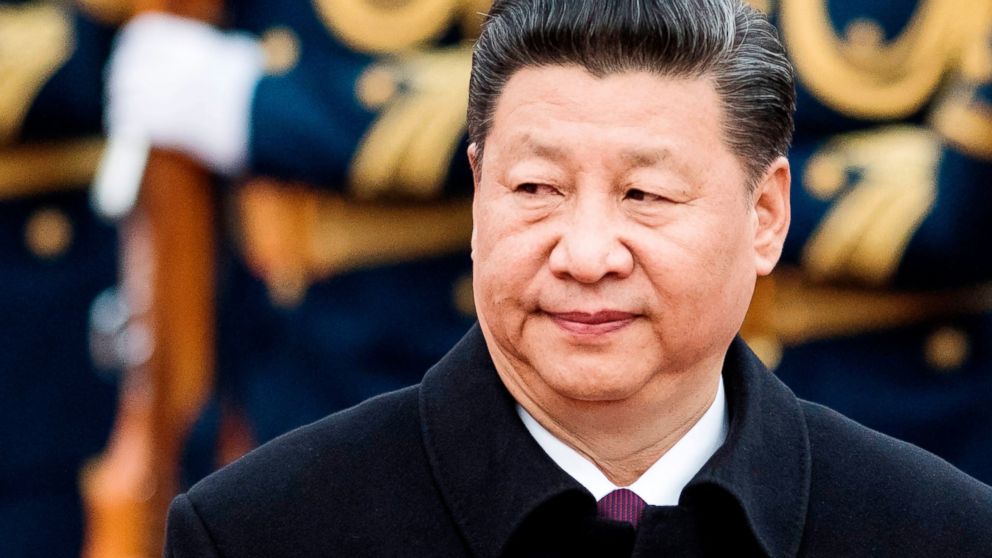Ever since the Coronavirus Pandemic gripped the entire world, Beijing has been engaged in bitter tussles with most of the countries in its vicinity as the Dragon’s expansionism has started hitting new highs, even by its own standards.
And now, the Xi Jinping regime is making another controversial move- this time in Hong Kong. The city’s “mini-Constitution” requires it to enact security laws that prevent “treason, secession and sedition”. But such laws have never been passed. Chinese President Xi Jinping needs to curb dissent and battle unpopularity within China following his colossal failure in handling the Coronavirus outbreak. Therefore, he is looking to divert attention to other issues- maritime disputes, tussle at the Line of Actual Control (LAC) and now enactment of a new Security law for Hong Kong.
Now, Beijing is looking to push them through. The National People’s Congress, a rubber-stamp of the Communist Party of China (CCP) is looking to introduce a law in Hong Kong, which could ban sedition, subversion and secession.
The pro-Democracy protesters in Hong Kong are enraged as Beijing could destroy Hong Kong’s authority bypassing the autonomous region’s legislators and force its will upon what is called the “Special Administrative Region” of China.
Since, Hong Kong reverted to China in the year 1997, it has retained certain freedoms that other parts of the People’s Republic of China do not enjoy under the “One Country, Two Systems” policy. But the pro-Democracy protesters in Hong Kong believe that China’s latest move to push through a new Security law could mean “the end of Hong Kong”.
The new legislation will extinguish Hong Kong’s autonomy and freedoms that are peculiar to the “Special Administrative Region” of China.
The last British Governor of Hong Kong Chris Patten called the latest Chinese move a “comprehensive assault on the city’s autonomy”. The United States President Donald Trump too said that the US would react strongly if Beijing pushed through these proposals.
Hong Kong’s Chief Executive, Carrie Lam is already compromised to Chinese influence, and therefore the latest move to push through a Security law would prove to be the last straw for pro-Democracy protesters in Hong Kong.
The latest move comes at the heels of ongoing tensions in the South China Sea and the East China Sea. Chinese vessels have been intruding into the Exclusive Economic Zones (EEZs) and territorial waters of other countries such as Japan and Vietnam in the East China Sea and the South China Sea.
With India, the People’s Liberation Army (PLA) troops have engaged in scuffles at Sikkim and Ladakh. Tensions continue to rise between India and China at the disputed borders in Eastern Ladakh.
Triggering Beijing’s extreme reactions are Xi Jinping’s domestic fears. Adam Ni, Director of the China Policy Centre, a Canberra-based research organisation said, “Regarding Xi’s popularity amid COVID-19, I think there are two sides to this. The earlier misstep by the Chinese authorities and the absence of Xi from the public limelight for days on end towards the early stages of this crisis has hit Xi’s popularity.”
Ni added, “Xi’s political star has certainly been challenged over the past twelve months with challenges across a spectrum of issues, including a slowing economy, Hong Kong, cross-strait relations with Taiwan, US-China relations and China’s international reputation. All in all, COVID-19 and these other challenges and blunders have made Xi vulnerable to criticism. He is less politically unassailable than he was at the start of 2019, for example.”
China’s One-Party system doesn’t allow for any dissent or criticism, but Xi Jinping can feel the palpable political discontentment within the country owing to the global backlash that Beijing is facing over the ongoing Pandemic.
Nasty remarks are being against Xi Jinping for his sheer incompetence in handling the Pandemic. Recently, an activist was detained for ‘subversion’ by Chinese authorities. The prominent activist, Xu Zhiyong, a former law lecturer and founder of the social campaign New Citizens Movement was detained in February.
Xu had said, “You (Jinping) didn’t authorise the truth to be released, and the outbreak turned into a national disaster.” He added, “Whenever you face looming crisis, you’re clueless … Mr Xi Jinping, please step down.”
Jinping has been looking to secure his position as the Chinese President. Last year, he carried changes to the constitution to become ‘leader for life’, like Mao, yet there were leaks from within the CCP showing that Jinping had faced outrage within the party over gross human rights abuse of the Uyghur Muslims in the country.
It is clear that the Coronavirus Pandemic has been the most damning of events as far as Xi Jinping’s popularity and position within China and CCP are concerned. Despite attempts to stifle dissent, he continues to face backlash. Therefore, he is detracting attention through other means- raking maritime disputes, causing border scuffles with India and curbing autonomy in Hong Kong in order to downplay opposition against him within mainland China.
